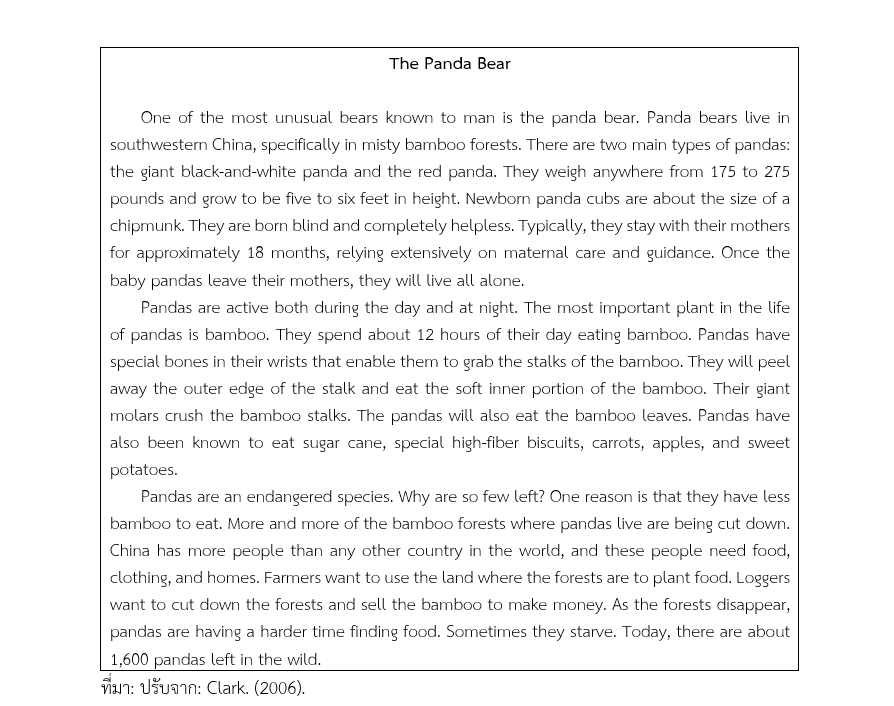The Use of Teacher Questions to Develop High-Level Reading Comprehension and Student Interaction
Keywords:
Using questions, high-level reading comprehension, student interaction, English language teachersAbstract
In a reading classroom, questions serve as a tool in the teacher's instructional management and play a crucial role in creating effective learning experiences for students. Well-crafted questions should be challenging, stimulating analytical thinking, promoting exploration, and fostering a deeper understanding of the reading material. Additionally, question-answer activities help to create classroom interaction, facilitating communication between the teacher and students, as well as among the students themselves through discussions and exchanges of knowledge and thoughts about the text. Despite the significance of questions in the learning process, several studies have identified challenges in teachers' use of questions. It has been observed that many teachers predominantly rely on textbook questions that focus on factual details, thus failing to cultivate high-level reading comprehension. Therefore, this article aims to present issues related to the use of questions in English reading classrooms, explaining them with illustrative examples to offer insight and practical guidance to teachers, enabling them to envision ways to apply this knowledge in their instructional practices.
References
กิตติชัย สุธาสิโนบล.(2558). เทคนิคการใช้คําาถาม. สารานุกรมศึกษาศาสตร์ คณะศึกษาศาสตร์ มหาวิทยาลัยศรีนครินทรวิโรฒ. 49(2558), 95-106. สืบค้นจาก https://ejournals.swu.ac.th/index.php/ENEDU/issue/view/739
ณรงค์ กาญจนะ. (2553). เทคนิคและทักษะการสอนเบื้องต้น. จรัลสนิทวงศ์การพิมพ์.
สถาบันทดสอบการศึกษาแห่งชาติ (องค์การมหาชน). สถิติ O-NET ย้อนหลัง. สืบค้นจาก https://www.niets.or.th/th/content/view/11821
อารีรักษ์ มีแจ้ง และวรรณประภา สุขสวัสดิ์. (2565). แผนการจัดการเรียนรู้วิชาภาษาอังกฤษ: คุณภาพและ ประสิทธิภาพการสอน. สันติศิริการพิมพ์.
Bhasin. H. (2021). What are questioning skills and various techniques for it? https://www.marketing91.com/questioning-skills/
Campos, M. (2023). 3 stages for teaching reading. https://englishpost.org/stages-teaching-reading/.
Cárdenas, Y. I. C. (2021). Questioning as an effective tool to enhance students´ interaction in the English classroom. South Florida Journal of Development, 2(2), 3510–3520. https://doi.org/10.46932/sfjdv2n2-185.
Castells, N.; Minguela, M.; Solé, I.; Miras, M.; Nadal, E.; Rijlaarsdam, G. (2022). Improving questioning–answering strategies in learning from multiple complementary texts: An intervention study. Reading Research Quarterly. 57, 879–912. https://ila.onlinelibrary.wiley.com/doi/full/10.1002/rrq.451.
Clark, S. K. (2006). Daily warm-ups: Reading grade 4. Teacher Created Resources.
Collier, E. (2018). What is effective questioning & why should I use it in my classroom? https://www.highspeedtraining.co.uk/hub/what-is-effective-questioning/.
Darn, S. (2023). Asking questions. https://www.teachingenglish.org.uk/professional-development/teachers/managing-lesson/articles/asking-questions.
Dzakiah, D. (2020). The use of higher order thinking questions in reading comprehension to improve the students critical thinking. Qalam: Jurnal Ilmu Kependidikan, 9(1), 36–42. https://doi.org/10.33506/jq.v9i1.941
Freahat, N. M., & Smadi , O. M. (2014). Lower-order and higher-order reading questions in secondary and university level EFL textbooks in Jordan. Theory and Practice in Language Studies, 4(9), 1804–1813. https://doi.org/10.4304/tpls.4.9.1804-1813.
Hashim, S, & Ahmed, D. A. (2022). Lower and higher order of thinking: Measuring students’ reading comprehension through Bloom’s taxonomy. doi:10.1109/SLAE54202.2021.9788072.
Jivavorranum, T. (2016). A study of reading genres and questions in Thai and English textbooks for ONET examinations. The New English Teacher, 10(2), 112-128.
Klanawong, S. (2017). A study of reading questions in high school English textbooks and national tests. The New English Teacher, 11(1), 44-68.
Krathwohl, D. R. (2002). A revision of Bloom’s taxonomy: An overview. Theory into Practice, 41(4), 212-218. https://www.depauw.edu/files/resources/krathwohl.pdf.
Pillai. A. (2023). All you need to know about questioning skills for teachers. https://www.suraasa.com/blog/questioning-skills?var=as1
Rhalmi, M. (2013). The 3 key stages of a reading comprehension lesson plan: Pre- reading, while reading, and post-reading. https://www.myenglishpages.com/blog/ reading-comprehension-lesson-plan-stages-and-activities./
Rohmah, Z. (2002). Teacher’s questions in reading class. TEFLIN Journal, 13(2), 163-174. file:///C:/Users/edasmare/Downloads/CLASSROOM_INTERACTION_STRATEGIES_EMPLOYED_BY_ENGLI.pdf.
Sandling, J. (2023). Open and closed questions for teachers: Examples, explanations, pros and cons. https://jonathansandling.com/open-and-closed-questions-for-teachers/.
Shanmugavelu, G., Ariffin, K., Vadivelu, M., Mahayudin, Z., & R K Sundaram, M. A. (2020). Questioning techniques and teachers’ role in the classroom. Shanlax International Journal of Education, 8(4), 45-49. https://doi.org/10.34293/education.v8i4.3260.
Sitorus, M. M., Silalahi, L. H., Rajagukguk, H., Panggabean, N., & Nasution, J. (2021). The Effect of higher-order thinking skill (Hots) in reading comprehension. IDEAS Journal of Language Teaching and Learning, Linguistics and Literature. 9(1), 455–463. https://doi.org/ 10.24256/ideas.v9i1.1895
Song, W. (2019). A study on the influence of teachers' questioning in high school English reading class on students' critical thinking. Theory and practice in language studies, 9(4), pp. 424-428. doi: http://dx.doi.org/10.17507/tpls.0904.09.
Srisang, P., & Everatt, J. (2021). Lower and higher level comprehension skills of undergraduate EFL learners and their reading comprehension. LEARN Journal: Language Education and Acquisition Research Network, 14(1), 427–454. https://files.eric.ed.gov/fulltext/EJ1284505.pdf.
Sunggingwati, D., Nguyen, H. T.M. (2013). Teachers’ questioning in reading lessons: A case study in Indonesia. Electronic Journal of Foreign Language Teaching, 10(1), 80-95. https://e-flt.nus.edu.sg/v10n12013/sunggingwati.pdf.
Tofade T, Elsner J, Haines S.T. (2013). Best practice strategies for effective use of questions as a teaching tool. American Journal of Pharmaceutical Education, 77(7):155. doi:10.5688/ajpe777155.PMID: 24052658; PMCID: PMC3776909.
Wati, D. L. (2019). Teacher questioning strategies to create classroom interaction in EFL classes. Universitas Negeri Semarang, Indonesia. https://lib.unnes.ac.id/34272/1/2201415029__Optimized.pdf









